Home \ Project News \ The Project Gives out Chicken to the Families in Huolie
Some of the children in Butuo eat 2 meals per day (lunch and dinner). The food they mainly eat is potatoes and bread - they do not eat enough nutritious food such as eggs, milk or vegetables. The main nutrition for children in Butuo consists mostly of carbohydrates. They have little protein intake and as a result the weight and height of the children is not reaching the national standard.
In order to improve the children’s nutrition in Huolie the project gave out chicks to the villagers and then assisted them to raise the chicks so that they could provide eggs to their children. On the 3rd of August 2016 the project gave out 1,450 chicks to 145 households in Bori village. Each household received10 chicks and signed an agreement that the chicks were meant for the production of eggs for the children and were not meant to be killed for meat, and neither should the eggs be sold. The villagers also received training on how to take care of the chicks.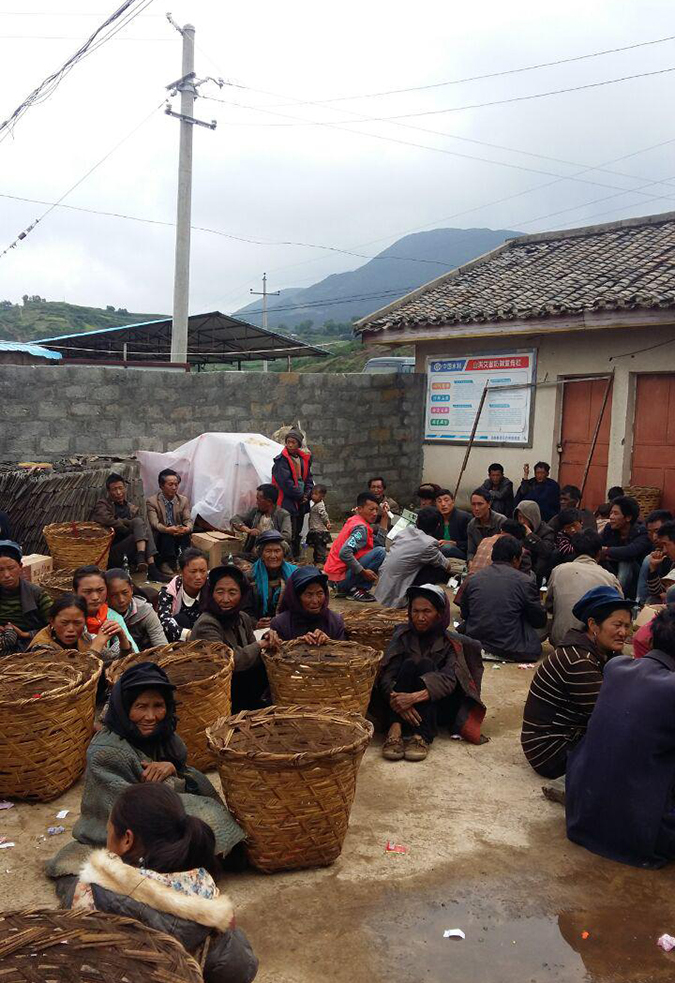
145 households gathered to receive chicks and each household received 10 chicks.
However - increasing capacity takes time, and the villagers were not used to raise egg laying chicken. In September the Project Leader made a follow up to monitor the progress made in raising the chicks and found that some of the chicken had died. She purchased and distributed terramycin and penicillin to all 145 households. By the end of October there were still problems with the survival of the chicken. An invited expert concluded that the villagers’ skills in raising chicken were low and that the chickens were affected by very low temperature. The next step was for the Project Leader to mobilize the villagers to build chicken runs to provide shelter and warmth during the winter months for the chickens. The Project Leader also increased training and household visits to inspect the families’ chicken raising. This shows clearly how important it is that donations of hardware are followed by enough capacity building and close follow up. This is the reason why Humana People to People projects always have people living and working long term in the project area who can follow up and secure that solutions are found when problems occur.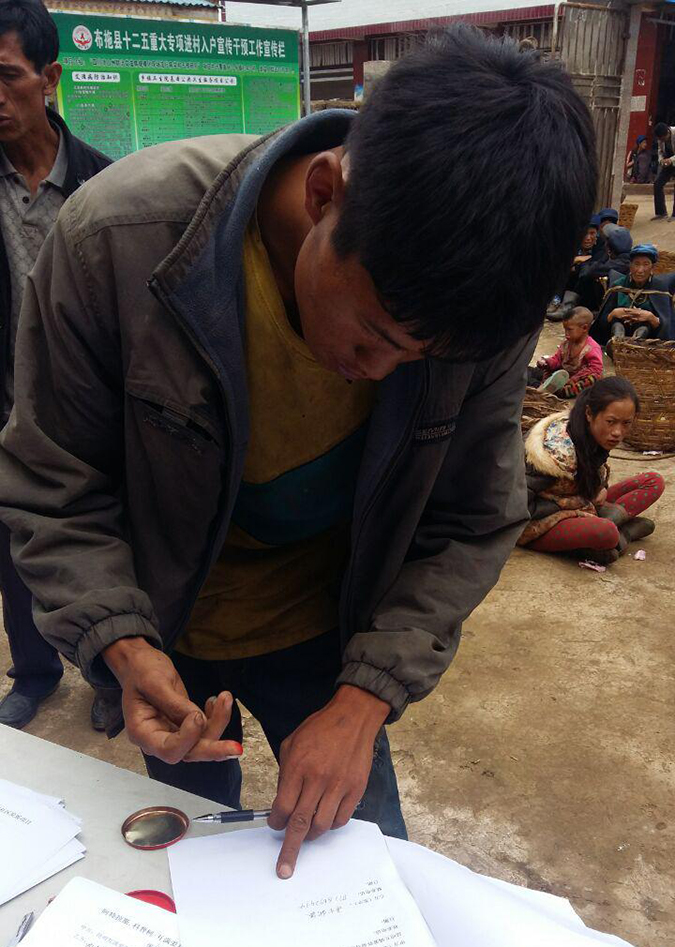
The contract was an agreement for the families to raise the chicks mainly for egg production for the benefit of the children and not for selling.
In addition to raising chickens in order to enrich the diet and increase the nutrients of the families the project mobilized the villagers to plant different kinds of vegetables. All the 145 households decided to participate in this program. The farmers agreed on the types of vegetables they wanted which comprised of cabbage, Chinese cabbage, parsley, carrots, garlic, lettuce and white lotus. The Project Leader purchased and distributed the seeds to the households. With a combination of eggs and vegetables in their diet the families now can improve their nutrition.
The chickens in Huolie have so far started laying eggs and the children and their families have started enjoying nutritious meals with eggs and a variety of vegetables.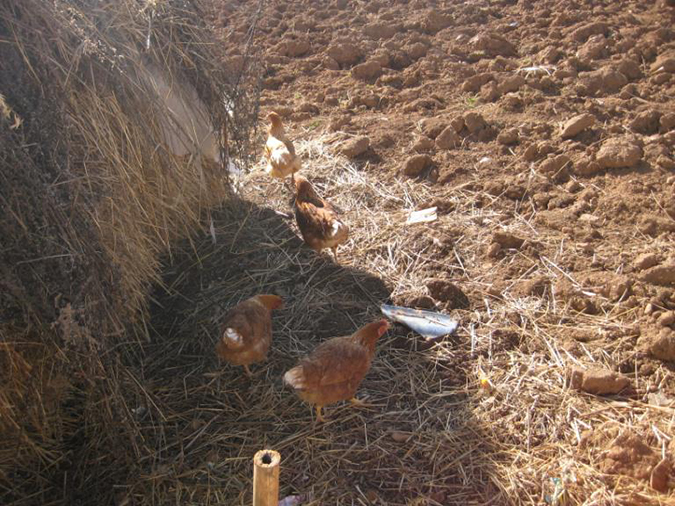
Some of the chicken were affected by extreme weather conditions due to lack of shelter.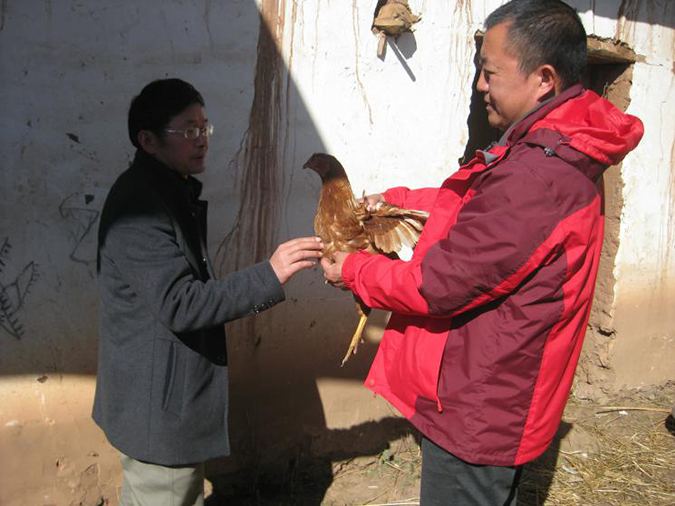
An expert was invited to visit each chicken raising household to help them with professional advice.
Brief summary of the project:
Atlas Copco launched the “water for all” charity organization in Sweden in 1984, which aims at providing clean drinking water to developing countries and this formally entered China in 2014. Atlas Copco worked 3 years with Plan International to do the Water for All project in Gansu and Shaanxi, last year they included Liangshan.
In 2016, Atlas Copco funded Humana People to People through China Charities Aid Foundation for Children, to implement a Community Development project in Butuo County. The grant money is raised from the employees and then the company matches 2:1, so for every 1 RMB given by staff the company adds 2 RMB. The staff from Atlas Copco has visited and filmed the project.
The period of the program is from the 1st of April 2016 to the 31st of March 2017. The CD Huolie (Community Development) program addresses water, hygiene and sanitation problems. The program focused on building the capacity and health knowledge of the community and on improving nutrition knowledge within the families. The families were organized in 5 village action groups, each covering 30 households. The villagers elected 2-3 committee members to be responsible for the running of the groups. In this way it was possible to reach out to each household with training and actions. The project also established 8 health and hygiene clubs (a club for each class) which increased health, hygiene and nutrition knowledge. The project benefitted 145 households with a total of 725 villagers, 300 students and 11 teachers. To curb the water problem the project built 1 water cistern and piping and installed inexpensive ceramic water filtration systems in the village. The project also built 2 toilets to help solve the problem of villagers’ relieving themselves in the open. At Eqing Primary School the project constructed 1 hand washing facility and 1 hot shower room. In addition the project established 1 hygiene and nutrition village training room where the village groups are provided with training in hygiene, sanitation and nutrition.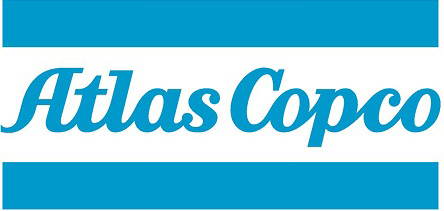
Supported by Atlas Copco (China) Investment Co. Ltd
Content in this article reflects the views of the authors and not those of the funder.